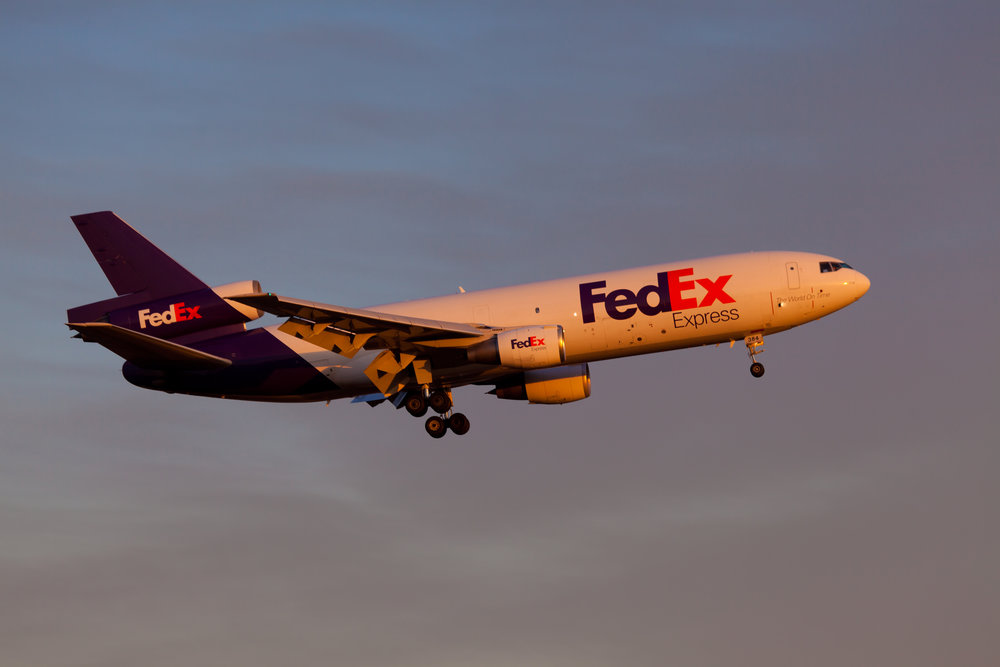
FedEx (NYSE: FDX), the world's largest airline by freight tonne-kilometers flown, is dealing with an impending pilot shortage. The Memphis-based carrier is expected to lose 150-200 of its 4,500 pilots this year and a similar number each year for the foreseeable future. The reason for this departure is that many pilots are reaching the federally mandated retirement age of 65. FedEx has attempted to delay the departure of pilots near retirement age by offering bonus incentives of $40,000 - $110,000 in exchange for continued service into 2019. FedEx is already the highest paying airline for pilots with thirty years of experience at over $300,000.
The entire commercial airline industry is facing a shortage of pilots for both cargo and passenger planes. Estimates suggest that there will be 1,600 unfilled pilot positions in the U.S. by 2020. One of the reasons for the lack of new commercial pilots is due to the high barriers of entry for new pilots. Acquiring a private pilot license often requires a college degree, an expensive forty-hour course followed by fifteen-hundred flight hours before one can be hired by a commercial airline. In the airline industry, only veteran pilots with at least ten years in the industry can expect to make at least one hundred-thousand-dollar salary. Even the military which has served as a personnel pipeline for U.S. Carriers saw a shortfall of aviators (ten percent of needed pilots) in 2018 due to excessively frequent deployments.
Despite the lack of supply of pilots, there is no shortage of demand for commercial cargo flights. The International Aviation Transport Association (IATA) forecasts global e-commerce sales to surpass 14% of the total retail market and generate four trillion dollars in 2020. This holiday season will see UPS (NYSE: UPS) charter short term leases to bring their fleet number from 247 planes up to nearly 600, roughly matching FedEx's fleet of 670 aircraft. Both UPS and FedEx will be hiring 100,000 and 55,000 seasonal workers respectively for their air and ground divisions.
Amazon's (NASDAQ: AMZN) potential advantage over FedEx and UPS in terms of cultivating pilots lies in their contracting ability. One of their aircraft leasing partners, Atlas Air, will hire a total of 400 to 500 pilots for Amazon and will build out its own fleet. This third-party sourcing will enable Amazon to avoid committing to the immense costs associated with air freight logistics and allow the company to be flexible for seasonal changes. On its part, FedEx launched the Purple Runway program earlier this year to promote student interest in pursuing aviation careers at selected colleges. UPS has also started the FlightPath training program to attract new pilots.
If freight aviation can't recruit enough new pilots, the industry may seek automation to address personnel cost increases. Without passengers, cargo aircraft are not bound by consumer demand for a multi-pilot flight crew. Greg Hyslop, chief technology officer for Boeing (NYSE: BA), spoke on automation, stating, "Clearly, for transporting cargo, you could see autonomous aircraft." "Airline analysts are already counting the billions of dollars in savings airlines could reap by culling humans." Given Hyslop's faith in automation, experts believe single-pilot or even pilot-less commercial freight aircraft will be possible in the near future.



Ingen kommentarer:
Legg inn en kommentar
Merk: Bare medlemmer av denne bloggen kan legge inn en kommentar.